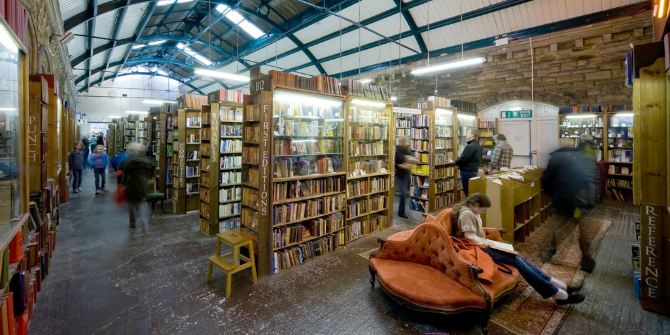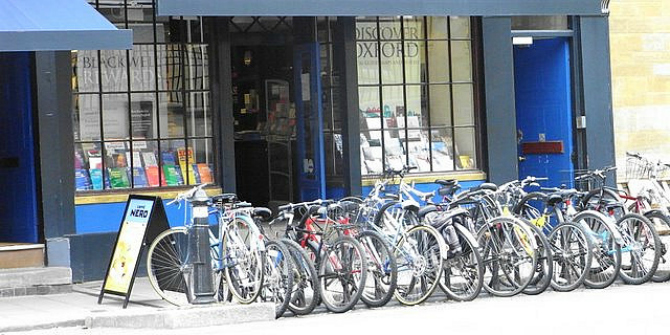Mohamed Selim is an adjunct faculty member at Westfälische Wilhelms Universität in Münster, Germany. In this post he gives us a historical overview of the two cities of Osnabrück and Münster, and talks us through his favourite bookshops there. If there’s a bookshop that you think other students and academics should visit when they’re undertaking research or visiting a city for a conference, find more information about contributing below.
As the clock turned 2pm sharp on October 24th 1648, the Thirty Years War Peace Treaty was ratified in the city of Münster’s town hall. The strenuous peace negotiations which started in neighboring Osnabrück in December 1644, ended one of Europe’s most destructive chapters.
War and peace have garishly shaped the daily lives of Münster & Osnabrück. Both cities where immensley destroyed during World War II and were forced to rebuild from the rubble with a clear conviction: that peace is the one and only way towards prosperity and sophistication. Today the neighbouring cities are cultural centers in western Germany, capitalizing on their unique heritage and overwhelming legacy. One of Osnabrück’s own, the venerable Erich Maria Remarque, in his legendary novel, All Quiet on the Western Front, has immaculately articulated the horrors of war, all wars, and showed hope that this menace would cease to exist. Osnabrück annually bestows its Peace Prize to activists and luminaries who endeavor to bring peace to a perpetually discomforted world. Living in Osnabrück and teaching in Münster, I am privileged to be able to learn the lessons of history in an immediate way.
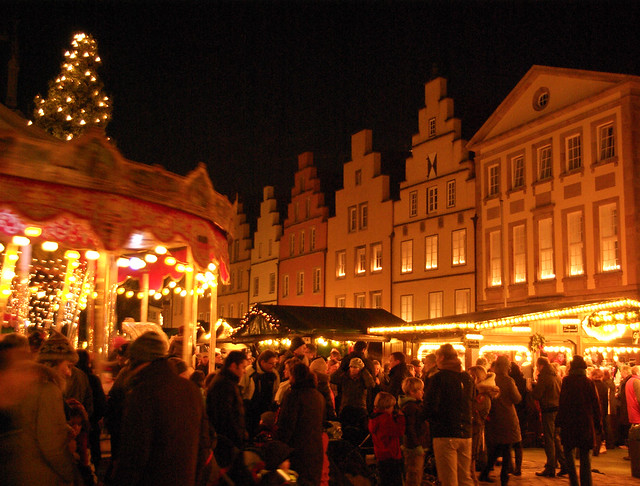
The significance of cultural hotspots has thus been part-and-parcel of both cities. In every major street, visitors will see major book stores alongside new literary initiatives, like the Osnabrück Books Bus, Münster’s bus stop bookshelves, and Münster’s Prison Library which was honored in 2007 as the German Library of the Year. Both cities also hold literature festivals with an international flavor, cementing their places as hotbeds for a vibrant, young, colourful, and peaceful Europe.
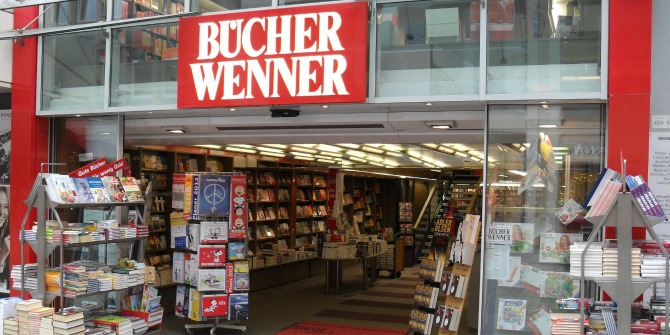
One of the most attractive bookshops in Osnabrück is Bücher Wenner, located atGroße Straße 69. It is located in an area of the city that buzzes with students hopping in and out of cafes and shops, and visitors exploring the city centre. Although the bookshop itself is vast, spreading across five impressive floors, inside a feeling of coziness and relaxation welcomes visitors, with comfy chairs and a café. Wenner specializes in German modern history, but has a very good selection of new releases and everything from gardening to travel. Staff speak German and English and are always happy to help new visitors.
Münster too has its own noteworthy bookshop. A must-see is the modern and spacious House-of-Books Poertgen-Herder, at Salzstraße 56. The shelves are stocked with a variety of subjects, particularly novels and fiction favourites. A diverse assortment of foreign titles is present in all fields, including the latest biographies and Der Spiegel and New York Times bestseller lists. The bookshop is furnished with comfy sofas that encourage customers to sit and skim through a few eye-catching books through their visit.
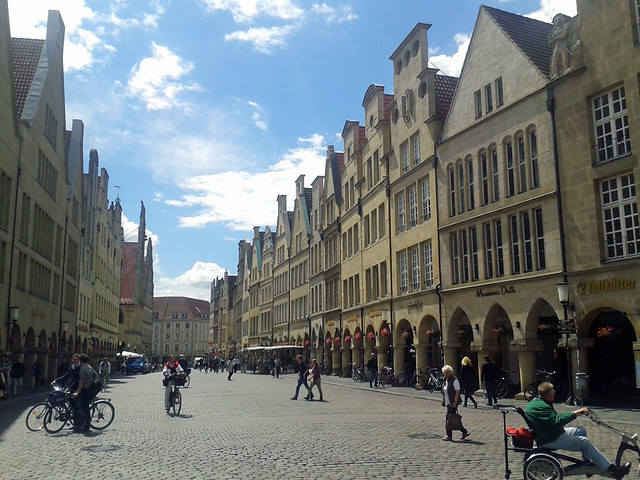
Mohamed Selim is an adjunct faculty member at Westfälische Wilhelms Universität in Münster, Germany.
Do you have a favourite bookshop? If there’s a bookshop that you think other students and academics should visit when they’re undertaking research or visiting a city for a conference, then now’s your chance to tell us all about it.
As part of a new weekly feature on LSE Review of Books, we’re asking academics and students to recommend their favourite two or three bookshops in a particular city, with the aim of building an exciting online series for our book-loving community of readers the world over.
Bookshops could be academic, alternative, foreign language, hobby-based, secret or underground institutions, second hand outlets, or connected to a university. We’d like to cover all world regions too.
If something comes to mind, we’re looking for around 100 words per bookshop, detailing why this place is a must-see. Our editorial team can then find suitable photos and links to accompany the piece, though you’re welcome to supply these too. We only ask that you focus on just one city or region, and two or three bookshops within it.
Email us now if you’d like to contribute: lsereviewofbooks@lse.ac.uk



